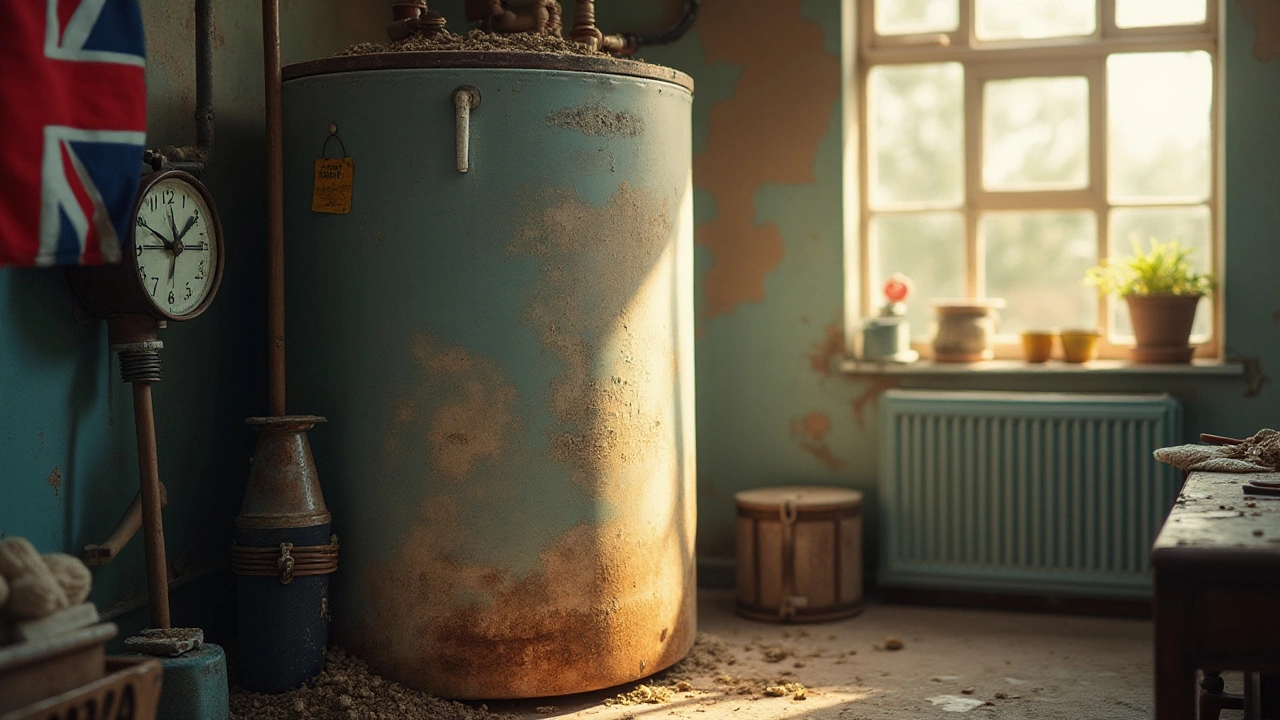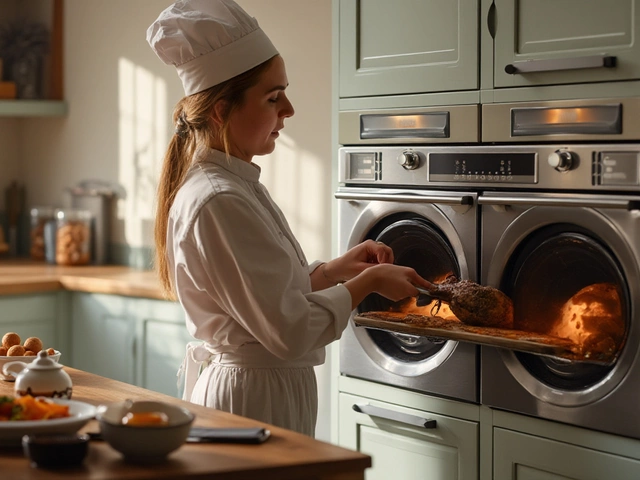Ever notice that your hot water feels lukewarm or your boiler makes strange noises? Chances are a layer of sediment is settling inside. Sediment is mostly tiny mineral particles that collect over time, especially in hard‑water areas. When it builds up, it blocks water flow, forces the heater to work harder, and can cut the lifespan of your appliance.
Most people think sediment only hurts water heaters, but it also sneaks into boilers, washing machines, and even dishwashers. The more sediment you have, the more energy you waste and the higher your repair bills become. The good news? You can spot the signs early and clean it yourself with a few basic tools.
In a water heater, sediment settles at the bottom of the tank. Over time it creates a crust that makes the heating element work harder. Typical symptoms are slower hot‑water recovery, rumbling noises when the heater kicks on, and higher energy bills.
Boilers face a similar problem. Sediment builds up on the heat‑exchange surface, causing uneven heating and occasional clanking sounds. If you hear a ticking or popping noise, it’s often sediment reacting to heat spikes.
Even a washing machine can suffer. Hard‑water deposits can coat the drum and hoses, leading to weird smells, fuzzy lint, and less effective cleaning. Dishwashers may leave spots on dishes when mineral buildup clogs the spray arms.
First, turn off the power or gas to the appliance and let it cool. Safety always comes first.
For water heaters, drain the tank. Connect a garden hose to the drain valve, open it, and let the water run until it looks clear. Close the valve, refill the tank, and turn the power back on. This flush removes most of the crust.
Boiler cleaning is similar but may need a professional if the unit is sealed. However, you can still flush the system by opening the bleed valves and letting water run until it’s clear, then refill and restart.
Washing machines benefit from a hot‑water cycle with two cups of white vinegar. Run an empty load on the longest setting, then wipe the door seal and detergent drawer. For dishwashers, remove the spray arms, soak them in vinegar, and scrub any buildup.
Regular maintenance makes a big difference. Flush your water heater at least once a year if you have hard water, and schedule a boiler service every 12‑18 months. Using a water softener can also cut down on new sediment forming.
By keeping an eye on noise, temperature, and energy use, you’ll know when sediment is getting out of hand. A quick drain or flush usually solves the problem, saves money, and extends the life of your appliances.

Neglecting to flush your water heater can lead to a host of issues, from inefficiency to full-blown malfunctions. Sediment buildup can decrease heating efficiency and even cause damage over time. This article explores what happens if you never flush your water heater, why regular maintenance is crucial, and how you can perform these tasks. Dive into practical advice and tips for maintaining a healthy water heating system.

Cookers are an essential part of any kitchen, and knowing their average lifespan can help in planning for replacements and repairs. On average, cookers last between 10 to 15 years depending on several factors like usage, maintenance, and brand quality. Regular maintenance and timely repairs can extend the life of your cooker significantly. Understanding the warning signs of wear and tear and knowing when to repair or replace can save both time and money. This article will dive into expert tips to maximize the life of your cooker.

Find out how to tell if your oven’s heating element or thermostat is busted with simple tests, warning signs, and expert tips you can trust.

This article provides a comprehensive guide on how to test and maintain your kitchen extractor fan to ensure it functions optimally. It includes practical steps for diagnosing common issues, cleaning tips to improve efficiency, and essential maintenance advice. Discover how to test airflow and electrical components safely, ensuring your kitchen remains free from unwanted odors and excess humidity. Learn valuable insights and practical tips to keep your extractor fan in top shape.

Searching for a trusty electric oven can make a big difference in your cooking experience and lessen repair issues. This article uncovers the top-performing brands known for reliable electric ovens, sharing insights on what makes these brands stand out. From innovative features to energy efficiency, you'll learn tips on choosing the right oven and maintaining it for long-lasting use. Whether you're shopping for a new appliance or fixing an old one, this guide shines a light on the best options available today.

Extractor fans are a lifesaver when it comes to clearing out steam, smoke, and nasty odors, but many people forget they actually need a little love now and then. This article cracks open the question of whether extractor fans need maintenance, and if so, what kind and how often. We'll cover quick tips, warning signs, and busted myths around fan care. Get the straightforward facts (and a few surprises) about keeping your fan working its best. No nonsense, just super practical info you can use right now.